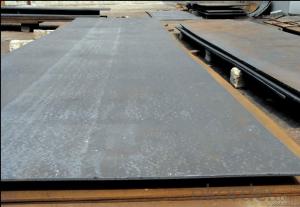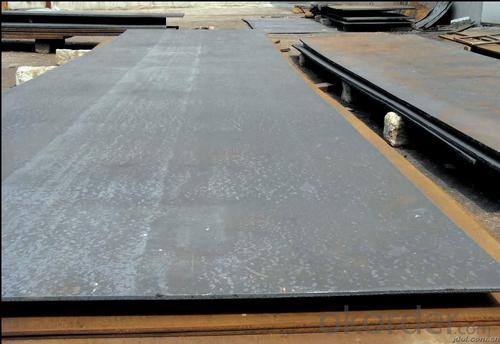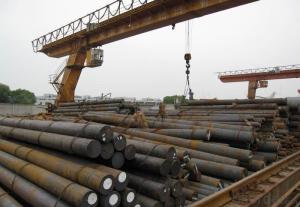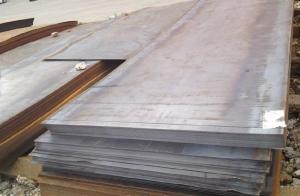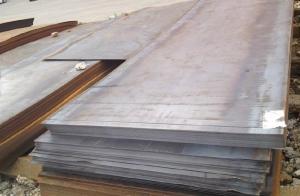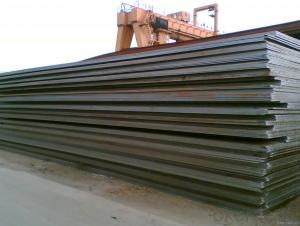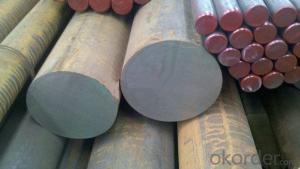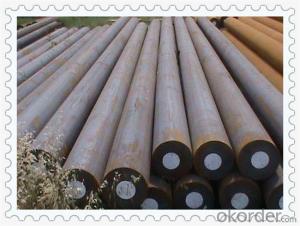Special Steel SS400B Q235 Mild Steel Plate
- Loading Port:
- China main port
- Payment Terms:
- TT OR LC
- Min Order Qty:
- 25 m.t.
- Supply Capability:
- 10000 m.t./month
OKorder Service Pledge
OKorder Financial Service
You Might Also Like
Specification
The details of our Steel
1. Produce Standard: as the GB, AISI, ASTM, SAE, EN, BS, DIN, JIS Industry Standard
2. Produce processes: Smelt Iron -EAF smelt Billet - ESR smelt Billet -Hot rolled or forged get the steel round bar and plate
3. Heat treatment:
Normalized / Annealed / Quenched+Tempered
4. Quality assurance:
All order we can received Third party inspection, You can let SGS, BV,.. and others test company test and inspect our products before Goods shipping.
Product information
Standard | ASTM, EN JIS, AISI, GB |
Brand Name | Baogang |
Grade | SS400 Q235B ST37 |
Type | Steel Plate |
Thickness | 10mm-120mm |
Width | 1219mm-3000mm |
Length | 3000mm-12000mm |
Z-Direction (Optional) | Z15, Z25, Z35 |
Model Number | SS400 Q235B ST37 A283 A36 |
Surface Treatment | anneal |
Technique | Normalizing, Tempered, Quenched |
Minimum Order Quantity | 60 tons |
Special Use | High-strength Steel Plate |
Application | Structure Steel |
Additional Description | According to customer' s requirements |
SS400/JIS G3101-1995
1, SS400 Performance
SS400/JIS G3101-1995 is basically equal to Q235/GB/T700-2006, have a great combination property, and its use is most widely.
2, SS400 Chemical Composition
S: <0.050
P: <0.050
3, SS400 Production Information
A, Commodity: Carbon steel plate
B, Thickness: 10mm-120mm
C, Width: 1219mm-3000mm
D, Length: 3000mm--12000mm
E, Technique: Hot rolled
F, Surface treatment: Coated or as customer's requirements
G, Standard: JIS
H, Terms of Payment: L/C or T/T
I, Delivery Detail: Within 30days after receipt of deposited or L/C at sight
Main product
High speed steel | |
AISI | M2,M4,M35,M42,T1 |
DIN | 1.3343,1.3243,1.3247,1.3355 |
JIS | SKH51,SKH54,SKH35,SKH59,SKH2 |
Cold work tool steel | |
AISI | D2,D5,D3,D6,A8,A2,O1 |
DIN | 1.2379,1.2601,1.2080,1.2436,1.2631,1.2363,1.2510,1.2327 |
JIS | SKD10,SKD11,SKD1,SKS3 |
Hot work tool steel | |
AISI | H13,H11,H21 |
DIN | 1.2344,1.2343,1.2367,1.2581,1.2713 |
JIS | SKD61,SKD6,SKD7,SKD5SKT4 |
Plastic mould steel | |
AISI | P20,P20+Ni,420 |
DIN | 1.2311,1.2738,1.2083,1.2316 |
JIS | PDS-3,SUS420J1,SUS420J2 |
Alloy structural seel | |
AISI | 5140,4340,4135,4140 |
DIN | 1.7035,1.6511,1.7220,1.7225 |
JIS | SCr440,SNCM439,SCM435,SCM440 |
Stainless steel | |
AISI | 440C,420,430 |
DIN | 1.4125 |
JIS | SUS440C |
Carbon steel | |
AISI | 1045,1020 |
DIN | 1.1191 |
JIS | S45C, G3101 |
Product show

Workshop show

Shipping
1. FedEx/DHL/UPS/TNT for samples, Door-to-Door;
2. By Air or by Sea for batch goods, for FCL; Airport/ Port receiving;
3. Customers specifying freight forwarders or negotiable shipping methods!
Delivery Time: 3-7 days for samples; 5-25 days for batch goods.
Payment Terms
1.Payment: T/T, L/C, Western Union, MoneyGram,PayPal; 30% deposits; 70% balance before delivery.
2.MOQ: 1pcs
3.Warranty : 3 years
4.Package Informations: 1) EXPORT, In 20 feet (GW 25 ton) or 40 feet Container (GW 25 ton)
2)as customer's requirement
Why choose us?
(1) The leading exporter in China special steel industry.
(2) Large stocks for various sizes, fast delivery date.
(3) Good business relationship with China famous factories.
(4) More than 7 years steel exporting experience.
(5) Good after-sales service guarantee.
- Q: What are the different welding techniques used for special steel?
- There are several welding techniques used for special steel, including Tungsten Inert Gas (TIG) welding, Metal Inert Gas (MIG) welding, Shielded Metal Arc Welding (SMAW), and Flux-Cored Arc Welding (FCAW). Each technique has its own advantages and disadvantages, and the choice of technique depends on factors such as the type of special steel, the thickness of the material, and the desired outcome of the welding process. TIG welding is commonly used for high-quality welds on thin materials, while MIG welding is suitable for thicker materials and higher production rates. SMAW is a versatile technique, suitable for various steel types and thicknesses, and FCAW is often used for outdoor applications and on thick materials.
- Q: How does special steel perform in stamping applications?
- The unique properties of special steel make it an excellent choice for stamping applications. Its high strength and durability ensure that it can withstand wear and tear during the stamping process, resulting in longer tool life and reduced maintenance costs. Additionally, special steel's heat resistance allows it to maintain its structural integrity even at high temperatures, preventing warping or deformation. Its exceptional dimensional stability ensures precise and consistent results, while its excellent formability allows for the creation of intricate designs. Overall, special steel's properties make it a reliable and versatile option for a wide range of stamping applications.
- Q: How are tungsten alloys used in the defense industry?
- Tungsten alloys are commonly used in the defense industry due to their exceptional properties such as high density, strength, and resistance to heat and corrosion. These alloys are used in various applications including armor piercing ammunition, kinetic energy penetrators, and armor plating for military vehicles and aircraft. Their ability to withstand extreme conditions and penetrate hardened targets make tungsten alloys vital for enhancing the effectiveness and protection capabilities of defense systems.
- Q: What are the applications of special steel in the nuclear industry?
- Special steel has various applications in the nuclear industry due to its unique properties. It is commonly used in the construction of nuclear reactors, fuel assemblies, and containment vessels. Special steel's high strength, corrosion resistance, and ability to withstand high temperatures make it ideal for these applications, ensuring the safety and efficiency of nuclear power plants.
- Q: How does special steel perform in extreme pressure conditions?
- Special steel is specifically designed to perform exceptionally well in extreme pressure conditions. Due to its unique composition and manufacturing process, special steel exhibits high strength, durability, and resistance to deformation, making it ideal for applications where extreme pressures are involved. When subjected to extreme pressure conditions, special steel is able to maintain its structural integrity without undergoing significant deformations. This is due to its high tensile strength, which enables it to withstand tremendous forces without breaking or bending. Additionally, the special steel's hardness and toughness allow it to resist wear and damage caused by the intense pressure. Furthermore, special steel possesses excellent heat resistance, which is crucial in extreme pressure conditions where elevated temperatures are often present. The steel's ability to withstand high temperatures without losing its mechanical properties ensures its reliability and effectiveness even under the most demanding circumstances. Moreover, special steel has excellent corrosion resistance properties, making it suitable for use in extreme pressure conditions where exposure to corrosive substances is a concern. The steel's resistance to oxidation and other chemical reactions prevents it from deteriorating or weakening, ensuring its long-term performance and reliability. Overall, special steel performs exceptionally well in extreme pressure conditions due to its high strength, durability, resistance to deformation, heat resistance, and corrosion resistance. These properties make it a reliable and efficient choice for various industries and applications that operate under extreme pressure environments, such as oil and gas exploration, aerospace, automotive, and heavy machinery manufacturing.
- Q: What are the safety benefits of using special steel?
- Using special steel can provide several safety benefits in various applications. One of the main advantages is its enhanced strength and durability compared to traditional steel. Special steel is often designed to withstand extreme conditions, such as high temperatures or corrosive environments, making it ideal for applications in industries like aerospace, automotive, and oil and gas. The high strength of special steel allows for the construction of safer and more reliable structures. It can withstand heavy loads, reducing the risk of structural failures or collapses. This is crucial in industries where the safety of workers, equipment, and the general public is of utmost importance. Another safety benefit of special steel is its resistance to corrosion. Corrosion can weaken structures and compromise their safety. Special steel is often alloyed with elements like chromium, nickel, or molybdenum, which provide excellent corrosion resistance. This makes it suitable for applications in marine environments, chemical processing plants, or any setting where exposure to moisture or chemicals is a concern. Special steel is also known for its ability to retain its mechanical properties at high temperatures. This makes it an excellent choice for applications where heat resistance is crucial, such as in the construction of fire-resistant structures or in the manufacturing of industrial ovens and furnaces. By using special steel in these applications, the risk of structural failure or fire-related accidents can be significantly reduced. Furthermore, special steel can offer improved fatigue resistance, which is important in applications subject to cyclic loading or vibration. Fatigue failure can occur when a material experiences repeated stress over time, leading to cracks and eventual failure. Special steel can be engineered to have excellent fatigue properties, reducing the likelihood of unexpected failures and improving the overall safety of structures or equipment. In summary, the safety benefits of using special steel include enhanced strength, durability, corrosion resistance, heat resistance, and fatigue resistance. These properties make special steel a reliable choice for industries where safety is a top priority, ensuring the protection of workers, equipment, and the general public.
- Q: What are the challenges in heat treatment of special steel alloys?
- The heat treatment of special steel alloys poses several challenges due to their unique composition and properties. One of the main challenges is achieving the desired microstructure and mechanical properties while maintaining dimensional stability. Special steel alloys often have complex alloying elements and require specific heat treatment processes to achieve the desired properties. Another challenge is controlling the heating and cooling rates during the heat treatment process. Special steel alloys are often sensitive to rapid or uneven heating and cooling, which can result in distortion, cracking, or the formation of undesirable phases. Therefore, precise control of the heating and cooling rates is crucial to avoid these issues and ensure uniformity in the final product. Furthermore, the presence of alloying elements in special steel alloys can lead to increased hardenability, making it challenging to achieve the desired hardness throughout the entire component. Special attention needs to be given to the selection of appropriate heat treatment parameters, such as temperatures, soaking times, and quenching media, to achieve the desired hardness and avoid excessive hardness gradients. Additionally, special steel alloys are often prone to oxidation and decarburization during heat treatment due to their high alloy content and exposure to elevated temperatures. These reactions can lead to surface defects and a decrease in the carbon content, affecting the final properties of the alloy. Therefore, protective atmospheres or heat treatment environments must be carefully controlled to prevent such issues. Moreover, the size and geometry of components made from special steel alloys can pose challenges during heat treatment. Large or complex-shaped components require careful consideration of the heating and cooling methods to ensure uniformity of the microstructure and properties throughout the entire component. This may involve the use of specialized furnaces, fixtures, or heat treatment cycles to overcome these challenges. In conclusion, the challenges in heat treatment of special steel alloys include achieving the desired microstructure and mechanical properties, controlling heating and cooling rates, managing hardenability, preventing oxidation and decarburization, and addressing the size and geometry of components. Overcoming these challenges requires a deep understanding of the alloy's composition, properties, and the application of appropriate heat treatment techniques.
- Q: How does special steel perform in cryogenic gas environments?
- Special steel performs well in cryogenic gas environments due to its high ductility and toughness at low temperatures. It is able to maintain its mechanical properties and resist embrittlement, making it suitable for applications such as LNG storage tanks, aerospace components, and cryogenic pipelines. Additionally, special steel exhibits excellent resistance to corrosion and oxidation, further enhancing its performance in cryogenic gas environments.
- Q: What are the common applications of special steel?
- Special steel has a wide range of applications in various industries. It is commonly used in the construction and automotive sectors for manufacturing components that require high strength, durability, and resistance to corrosion. Special steel is also utilized in the production of machinery and tools, such as cutting blades, drill bits, and gears, due to its excellent hardness and wear resistance. Additionally, it finds its application in the energy sector, particularly in the manufacturing of turbines, generators, and oil drilling equipment, where its high temperature and pressure resistance are vital.
- Q: How does special steel contribute to the medical field?
- Unique properties and characteristics of special steel are essential in the medical field, playing a crucial role. Surgical instruments and medical devices heavily rely on special steel due to its exceptional strength, durability, and corrosion resistance. These qualities ensure that the instruments can endure the demanding surgical environment, maintain sharpness for extended periods, and withstand sterilization processes. Moreover, special steel finds application in the manufacturing of implants and prosthetics. Its biocompatibility and high strength-to-weight ratio make it an ideal material for creating artificial joints, spinal implants, and dental implants. The ability of special steel to integrate with the human body without causing adverse reactions or rejection is vital for the success of these medical interventions. Additionally, special steel is utilized in the production of medical equipment such as MRI machines, X-ray machines, and radiation shields. Certain types of special steel possess unique magnetic properties, enabling the creation of powerful magnets used in MRI machines. This allows for detailed and accurate imaging of the human body. Furthermore, special steel's ability to shield against radiation makes it a critical component in radiation therapy equipment, safeguarding healthcare professionals and patients from harmful radiation exposure. In conclusion, special steel's strength, durability, corrosion resistance, biocompatibility, and unique magnetic properties make it an indispensable material in the medical field. It finds applications in surgical instruments, medical devices, implants, prosthetics, and medical equipment. The contributions of special steel in ensuring the safety, effectiveness, and success of various medical procedures and treatments are invaluable.
Send your message to us
Special Steel SS400B Q235 Mild Steel Plate
- Loading Port:
- China main port
- Payment Terms:
- TT OR LC
- Min Order Qty:
- 25 m.t.
- Supply Capability:
- 10000 m.t./month
OKorder Service Pledge
OKorder Financial Service
Similar products
Hot products
Hot Searches
Related keywords
